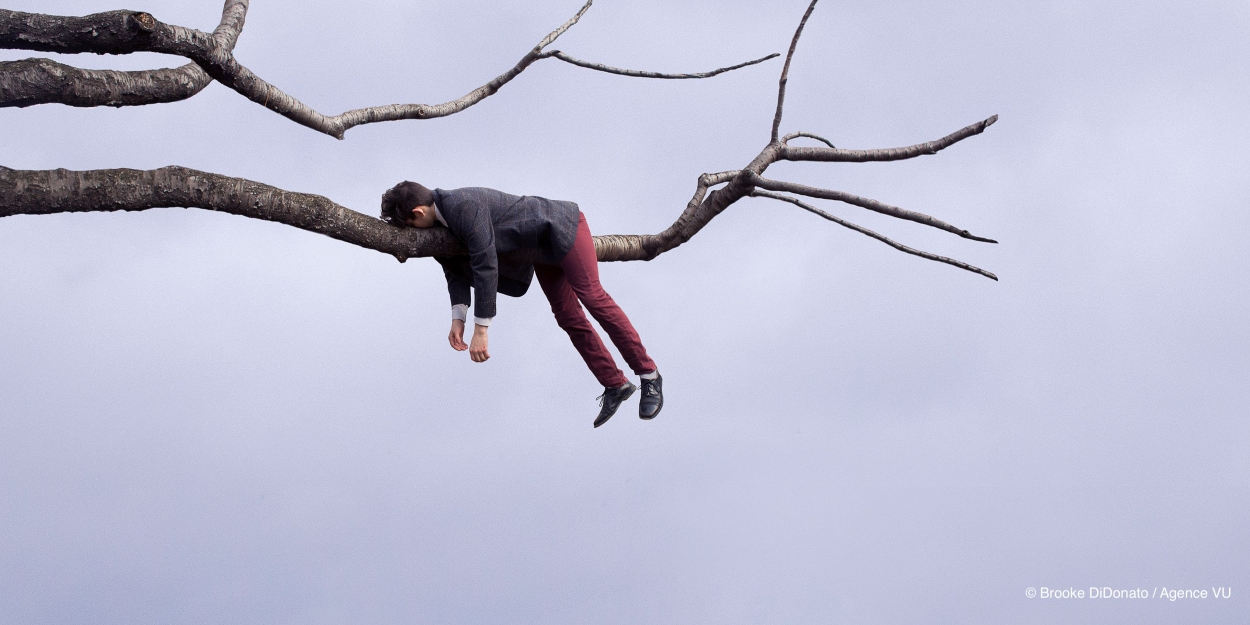La Monnaie Will Present YEVGENY ONEGIN Beginning 29 January
Performances run through 12 February.

Few artists can predict whether or not their work will stand the test of time, but Tchaikovsky was particularly bad at it. So much so that the enthusiasm he put into each of his compositions went hand in hand with a villainous sense of self-criticism. In a letter to his patron and friend Nadezjda von Meck in 1878, the composer predicted the fate of his adaptation of Pushkin's Eugene Onegin: "As it is insufficiently lively and interesting for it to be to the public's liking, it will never become a staple of the opera repertoire." Today Eugene Onegin is one of the world's most frequently performed operas.
Tchaikovsky set very high artistic demands for the eventual staging of his Pushkin adaption. These included the need for accomplished, well-prepared singers who could convey strong emotions in a natural way; effective staging that respected the story; choruses who really did participate in the events portrayed, and a charismatic conductor.... Who could have wished for better leadership for our new production than that of theatre director Laurent Pelly and conductor Alain Altinoglu.
The libretto of the opera is based on the eponymous novel in verse written by Pushkin
between 1821 and 1831, which is set in the Russian provinces. Olga's lover Lensky pays
a visit to the two sisters, Tatyana and Olga, accompanied by his friend Onegin. The
young Tatyana is immediately smitten. She wastes no time in sending him a passionate
letter, but the next day Onegin rejects her advances on the grounds that he doesn't
believe he is cut out for married life. Several years later, Onegin's presence at a ball
held in Tatyana's honour sets tongues wagging. In revenge for the gossip, Onegin
seduces Lensky's fiancée Olga. Lensky challenges his friend to a duel but pays with his
life. Many years later, at a party in St Petersburg, Onegin is reunited with Tatyana, who
is now married. In the privacy of another room in the house, Onegin declares his love
for the young woman. Despite her feelings for Onegin, Tatyana remains faithful to her
husband and bids Onegin farewell forever.
composed Eugene Onegin at a terrific pace, with an overwhelming passion for his
subject. He began work on the first drafts of the score in the early summer of 1877
during a stay at the Glebovo estate and submitted the completed work, including
orchestration and piano extract, to his publisher in February of the following year.
Eugene Onegin was premiered at the Bolshoi Theatre in Moscow in 1881, but its
popularity in the rest of Europe was limited. Indeed, it would be some time before the
work found a more established place in the repertoire but, after that rather slow start,
Eugene Onegin became unstoppable and in 1920 the work was even premiered at the
Met in New York. The opera has also been staged a number of times at La Monnaie.
After a French version in 1955 and productions in 1974 and 2001, this is the fourth
production at our theatre.
Eugene Onegin is one of the most canonical examples of Tchaikovsky's artistic process
as an impulsive creative who also concerned himself with how his work would be
received. He expressed this in two wonderful letters to his friend, the composer and
musicologist Sergei Taneyev in 1878: "I wrote this opera because one fine day I felt an
inexpressible urge to set to music everything in Onegin that is just asking to be turned
into music. I did this as best as I could. I worked on the opera with an indescribable
enthusiasm and pleasure, not worrying too much about whether it had action, effects
etc. I need people, not puppets; I would gladly tackle any opera subject in which, even
if it did not have any powerful and unexpected effects, I should find beings like me,
experiencing emotions which I too have experienced and can understand. What I look
for is an intimate but powerful drama, based on a conflict of situations which I have
experienced or witnessed myself, and which are able to touch me to the quick. I wrote
this piece because I was obeying an irresistible inner attraction. I assure you that it is
only under this condition that one should write operas. [...] As for the music, I should
like to point out that if there was ever any music written with genuine enthusiasm,
with love for the plot and characters it is inspired by, then that is the music to Onegin.
I was melting and quivering with indescribable delight when I wrote it. And if even
just the slightest portion of what I felt when composing this opera finds a response in
the listeners, then I will be very satisfied and I want for no more."
YEBGENY ONEGIN Cast/Creative
Conductor Alain Altinoglu
Director & Costumes Laurent Pelly
Set design Massimo Troncanetti
Lighting Marco Giusti
Choreography Lionel Hoche
Costume collaboration Jean-Jacques Delmotte
Chorus master Jan Schweiger
Larina Bernadetta Grabias
Tatyana Sally Matthews, Natalia Tanasii (1, 4, 10, 14.2)
Olga Lilly Jørstad, Lotte Verstaen° (1, 4, 10, 14.2)
Filipp'yevna Cristina Melis
Yevgeny Onegin Stéphane Degout, Yuriy Yurchuk (1, 4, 10, 14.2)
Lensky Bogdan Volkov, Sam Furness (1, 4, 10, 14.2)
Prince Gremin Nicolas Courjal
Captain Petrovitch Kris Belligh
Zaretsky Kamil Ben Hsaïn Lachiri°
Triquet Christophe Mortagne
Vorsänger Carlos Martinez
° MM Laureate
La Monnaie Symphony Orchestra and Choirs
Opening Night 29 jan 15:00
31 jan 19:30
01, 02, 04, 07, 09, 10 & 14 feb 19:30
05 & 12 feb 15:00

Videos

